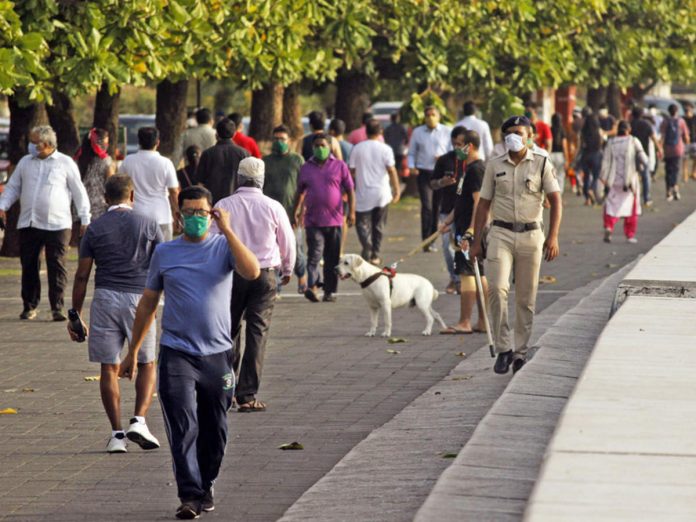This article is written by Saswata Tewari from the University of Petroleum and Energy Studies Dehradun. The objective of this article is to clarify the legality of people going out to get food during lockdown.
Table of Contents
Introduction
It seems like just yesterday that India reported its first case of COVID-19. in the state of Kerala on January 30th, 2020, and shortly after Indian Prime Minister Narendra Modi issued a 21-day lockdown across the country. The lockdown was gradually extended, and essential measures were taken to combat the virus that was spreading swiftly across the country. As the epidemic wreaked havoc on nations, India made the correct option to put the country on lockdown, enabling for the most effective handling of the COVID 19 issue.
Malls, restaurants, and places of worship were closed, and legislation such as the Epidemic Diseases Act 1897, the Disaster Management Act 2005, and the Essential Commodities Act 1955 was invoked to regulate the situation. The Central and State Governments imposed restrictions and other steps to combat the virus’s effects, but because every action has an equal and opposite reaction, the measures had a significant economic and social impact on the lives of the country’s citizens.
This article discusses the legality of the situation when the general public has to go out to get food during the lockdown. Before we jump into the heart of our topic, it is necessary to know the relevant laws relevant to the situation.
Applicable laws
Essential Commodities Act, 1955
This Act was passed to regulate the production, supply, and distribution of a variety of basic commodities that it declares essential, to ensure that they are available at reasonable costs. The government also has the authority to determine the maximum retail price of any packaged product it determines to be an essential item.
Section 2A of the Act gives the Central Government the authority to add or remove any essential commodity from the Schedule issued under the Act if it believes it is required in the public interest and for reasons to be indicated in notifications published in the Official Gazette.
Under Section 3 of the Act, the Central Government has the power to control the production, supply, distribution, etc of essential commodities where, if it is satisfied that it is important or expedient so to do, for preserving or increasing supplies of the essential commodities or for securing their equitable distribution and availability at fair prices.
Disaster Management Act, 2005
The reason for the enactment of this Act was the existing situation was spiraling out of control. It was implemented to create a more effective response to the crisis. The act establishes the National Disaster Management Authority (NDMA), and Section 6 of that Act deals with the authority’s potential. Also as per Section 38 of the Act, the states are required by the Act to follow the NDMA’s directions.
Section 11 of the Act also mandates the implementation of a National Plan for disaster management for the entire country. Section 8 of the Act establishes the National Executive Committee, which is responsible for carrying out the functions conferred on it by Section 10 of the Act. This committee will carry out the National Plan, which contains strategies for disaster prevention, integration, and readiness, and which, once again, is unrestricted to the point where the government can take whatever drastic steps it sees fit to mitigate the crisis.
Epidemic Diseases Act, 1897
To curb the spread of the bubonic plague in Bombay, this act was enacted in 1897. It is implemented again, to improve prevention. The State Government has imposed limits on free travel by combining provisions from the Epidemic Diseases Act 1897 and Section 144 of the Criminal Procedure Code 1973.
The legality of going out to get food during lockdown
To understand the legality of the act of going out to get food, it is important to understand the following things:
- Does food comes under the purview of essential commodities.
- If it does what food types come under the ambit of essential commodities.
Meaning of essential commodities
The term “essential” refers to something that is exceedingly significant or absolutely necessary. Now the question will arise what would be considered as absolutely necessary. Food can be deemed absolutely necessary, but whether all types of food, such as chocolates, ice cream, or similar goods, are deemed absolutely necessary is debatable. For some people even, toothpaste could not be said to be absolutely necessary. What added to this confusion was the expression ‘grocery’. Shops of grocery were allowed to run under the order issued by the government. The Ministry of Food Processing then issued a clarification, stating that the term “food,” as used under the order of the Ministry of Home Affairs, would take its meaning from the definition of “food” under the Food Safety and Standards Act, 2006. The Food Safety and Standards Act’s definition of food includes all types of food, including fancy/luxury foods.
But the term “foodstuff” or “food” is not defined anywhere under the Essential Commodities Act. Nonetheless, the scope of this term has been developed through various cases such as the:
Satpal Gupta v. State of Haryana
Cattle and poultry foods were found to be within the meaning of the foodstuff in this case, completing the finding that the food is related to both people and animals.
State of Bombay v. Virkumar Gulab Chand Shah
In this case, it was determined that foodstuff comprises raw materials, things utilized in the process, and things used in the preparation of food, resulting in the inclusion of turmeric in the scope of foodstuff.
S.Samuel, M.D., Harrisons v. Union of India
In this case, it was determined that tea does not fall under the definition of food and is merely a stimulant. It is not utilized in the preparation of food and has no nutritional value, yet in common language, when someone drinks tea, even then it is not considered to be eating.
Whether food items fall under the purview of essential commodities or not
The orders for the lockdown procedure now make it compulsory for all industrial, commercial, and private establishments to close down, however, exceptions are made to the few institutions who deal in ‘essential commodities’ which include food, drugs, pharmaceuticals, medical devices, and shops dealing in groceries.
Now the term essential commodities in the order given on 24 March 2020 created certain confusion and posed challenges as well. The first one was the confusion that arose due to similarity in nomenclature with the Essential Commodities Act, 1955. Many assumed the order was issued under the Essential Commodities Act, which is used to maintain supply balances, enhance supplies of essential commodities, and ensure their equitable distribution and availability at fair rates. However, this was not the case, as the sole objective was to maintain the supply of essential commodities, just as it had been done before the lockdown. Let’s look at the difference between a hand sanitizer and a mask to see what we’re talking about.
At about the same time, the government noted that masks and sanitizers were either unavailable or only available with significant difficulty and at high costs from most merchants in the market. In response to the crisis, the government issued an order under the Essential Commodities Act revising its schedule to declare hand sanitizer and mask as essential commodities until June 30, 2020.
The order from the Ministry of Home Affairs, dated March 24, 2020, was issued under the Disaster Management Act, 2005, rather than the Essential Commodities Act. It is to be noted that under Section 6(1) of the Disaster Management Act, National Disaster Management Authority( NDMA) is responsible for laying down the policies, plans, and guidelines for disaster management for ensuring timely and effective response to a disaster. Also, as per Section 10(1) of the Disaster Management Act, the National Executive Committee (NEC) has the authority to assist the NDMA in the discharge of its functions and has the responsibility for implementing the NDMA’s policies and plans and ensuring compliance with directions for disaster management.
The Disaster Management Act does not define the expression “essential commodities.” It is a legal principle that in the absence of a definition in the statute, one must examine the overall goal of the statute as well as the common or trade meaning. Therefore, the definition under the Essential Commodities Act would be useless.
As confusion grew over the exact meaning of “essential commodities”, the Ministry of Home Affairs issued numerous addendum orders and clarifications, defining food and groceries as essential items, among other things. The clarification stated that the expression ‘Grocery’ includes hygiene products such as hand wash, soap, disinfectant, body wash, shampoo, surface cleaner, detergent, tissue paper, oral care products, sanitary pads and diapers, charge and battery cells, etc. In response to the specific question of what constitutes food and grocery, it was stated that because it is neither possible nor desirable to list each item of food and grocery in the guidelines, the State/Union Territory Governments are advised to interpret these terms to mean all food and grocery items that are commonly consumed by people daily.
Final thoughts
After going through all of the case laws, rules, and guidelines provided by the Central and State Governments, it can be concluded that going out to acquire food for consumption is completely permissible. However, a line has been made in the sand when it comes to the definition of foods since only those food ingredients are advised to be acquired by the public that are absolutely necessary for food intake, such as rice, dal, turmeric powder, sugar, salt, etc. These are the food items that fall under the radar of essentially required food.
Also, getting a double cheese sandwich when your neighborhood is under lockdown makes no sense; yet, you may get the materials needed to make the double cheese sandwich at home and prepare it there, and there is no legal punishment for you to do so. E-commerce platforms are also fully functional, allowing you to order high-end foods such as ice cream or cream rolls. It is possible to have a grey area in our laws when it comes to the definition of food, but it is the responsibility of an Indian citizen to follow the standards set forth by the government. We will only be able to beat the virus if the government and the residents of our country work together.
Legal provisions you should be aware of
Section 188 of the Indian Penal Code 1860(“IPC”), states whoever disobeys a public servant’s order to abstain him from executing any act or to take direction respecting any property in his possession, despite knowing that the officer is allowed to do so and if the disturbance or disobedience causes or threatens to cause annoyance, hurt, or risk of obstruction to any lawfully employed person, the offender faces a penalty of up to one month in jail or a fine of up to Rs. 200. Section 269 of the IPC states that whoever commits a negligent act with the intent to transmit infection of disease dangerous to life is subject to imprisonment for up to 6 months or a fine, or both if he knows or has cause to believe that the act would spread infection of a disease harmful to life. Section 270 of the IPC states that anyone who commits a heinous crime with the intent to spread infection of a life-threatening disease is subject to a sentence of imprisonment of up to two years, a fine, or both.
These are some of the legal provisions that can be utilized against a person who acts irrationally or contrary to the government’s directions in an emergency.
Conclusion
We are going through some difficult circumstances, but with the right decisions, we will be able to get through them. It is the responsibility of the general population to stay at home and prevent the spread of the virus by being vaccinated as soon as feasible. However, if a person goes out during a lockdown to obtain items that are not strictly necessary, that person may face legal consequences.
References
- https://www.barandbench.com/columns/legal-connotation-to-the-lockdown-and-other-allied-issues-of-lockdown-due-to-covid-19
- https://www.lexology.com/library/detail.aspx?g=8ce28108-1e83-4c05-8114-b411e1efdb6e&filterId=f5d6f1dd-2a65-40b3-b490-6147d5ac3082
- https://blog.ipleaders.in/overview-of-the-essential-commodities-act-1955/#Foodstuff
- https://blog.ipleaders.in/laws-relating-covid-19-w-r-t-changing-dimensions-penal-laws-accessibility-food-poors-lockdown/
LawSikho has created a telegram group for exchanging legal knowledge, referrals, and various opportunities. You can click on this link and join:
 Serato DJ Crack 2025Serato DJ PRO Crack
Serato DJ Crack 2025Serato DJ PRO Crack











 Allow notifications
Allow notifications


